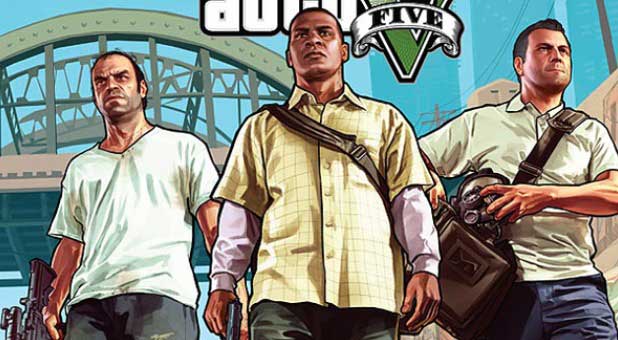In the wake of the Newtown massacre, Senator John Rockefeller has “called for a national study of the impact of violent videogames on children and a review of the rating system,” but the video game manufacturers claim there is “no connection between entertainment and real-life violence.” Are they in denial?
On Wednesday, December 19th, the Entertainment Software Association (ESA), which represents the $78 billion U.S. videogame industry, offered its “heartfelt prayers and condolences” to the families of the victims, stating that, “the search for meaningful solutions must consider the broad range of actual factors that may have contributed to this tragedy.”
For the ESA, however, it appears that one of those “meaningful solutions” does not include doing away with or greatly curtailing the availability of violent video games: “Any such study,” the ESA stated, “needs to include the years of extensive research that has shown no connection between entertainment and real-life violence.”
This is reminiscent of the claims of the tobacco industry not that many years ago. When their companies began to be sued by smokers for lung cancer and other diseases, they first claimed that research indicated that there was no connection between lung cancer and smoking. Eventually, they grudgingly acknowledged that in some cases there could be a connection, but offered this defense in court (as summed up by their critics): “Yes, smoking causes lung cancer, but not in people who sue us.”
Are we witnessing the same pattern of denial, soon to be followed by gradual, grudging admission, when it comes to violent video games?
On the one hand, there is damning anecdotal evidence, from the Columbine killers (obsessive players of “Doom,” not to mention obsessives viewers of the über-violent “Natural Born Killers” movie), to the Newtown killer (Adam Lanza obsessively played “Call of Duty”).
On the other hand, there are academic studies like those of N. L. Carnagey and C. A. Anderson (Department of Psychology Iowa State University, Ames, IA), which examine the connection between violent media (including TV, movies, and video games) and violent behavior. They noted that, “Despite how the news media [continue] to portray the effects of media violence, the research is clear: youth who view violent television tend to become more aggressive adults.”
With regard to violent video games, they noted that, “Because violent video games are a rather new type of violent media, the literature examining its negative effects on players is rather small, but a rather clear consensus has already been reached. This consensus is virtually identical to the conclusions reached in the violent television literature: playing violent video games increases aggression. . . . Recent meta-analyses have demonstrated that exposure to violent video games increases aggressive behavior, cognition, affect, and physiological arousal, and decreases helping behavior.”
To be sure, there are other studies that have questioned these conclusions, claiming that the issues are far more complex.
Psychologist John D. Grohol wrote that, “I have long been skeptical of the direct causation link some professionals pronounce exists between increased violence and playing violent video games (or video games with violence in them). . . . So it wasn’t surprising for me to read that more and more researchers are questioning these links, and suggesting that while there may be a link, it is a complex and nuanced one. It’s not one that easily fits into a 30-second sound bite.”
Grohol highly recommended the book written by psychologist Lawrence Kutner and sociologist Cheryl K. Olso, “Grand Theft Childhood: The Surprising Truth About Violent Video Games and What Parents Can Do.”
Summarizing the results of the $1.5 million study carried out by Kutner and Oslo (who do, commendably, call for greater parental involvement), Grohol exclaimed, “Surprise, surprise! People who may already exhibit signs of anger or aggression may be drawn to such games. The games don’t cause the anger or aggression. Such people may also be at greater risk for showing increased anger or aggression.”
In short, according to the study (citing only the most relevant results here):
- Teens who are already angry or aggressive likely should be limited in their playing of violent video games
- Teens should not play M-rated games
- Girls especially should not play M-rated games
- And of course, all things in moderation. Playing a video game for 6 or 8 hours straight is unhealthy behavior at any age.
So this is supposed to deny the connection between violent behavior and violent video games? It obviously supports the argument.
Few, if any, are claiming that violent video games (or movies or TV shows) actually cause violent behavior. But it cannot reasonably be denied that they contribute to violent behavior in many cases, in particular when played obsessively.
This seems undeniable in at least two ways: These games desensitize those who play them for countless hours, and the games help blur the distinction between reality and fantasy.
Years ago, while in Rome, I read the stories of some political terrorists who spoke of the trauma they experienced after murdering for the first time, a trauma that dissipated and disappeared as they killed more people. In contrast, the Columbine killers, just teenagers, reportedly laughed as they cut down their classmates and teachers in cold blood.
Tragically, this seems to be the new norm.
Can the manufacturers of violent video games really deny any connection between their lucrative products and these horrific, murderous acts? Is there no blood on their hands?
Michael Brown is the author of The Real Kosher Jesus and the host of the nationally syndicated talk radio show The Line of Fire on the Salem Radio Network. He is also president of FIRE School of Ministry and director of the Coalition of Conscience.
See an error in this article?
To contact us or to submit an article





















